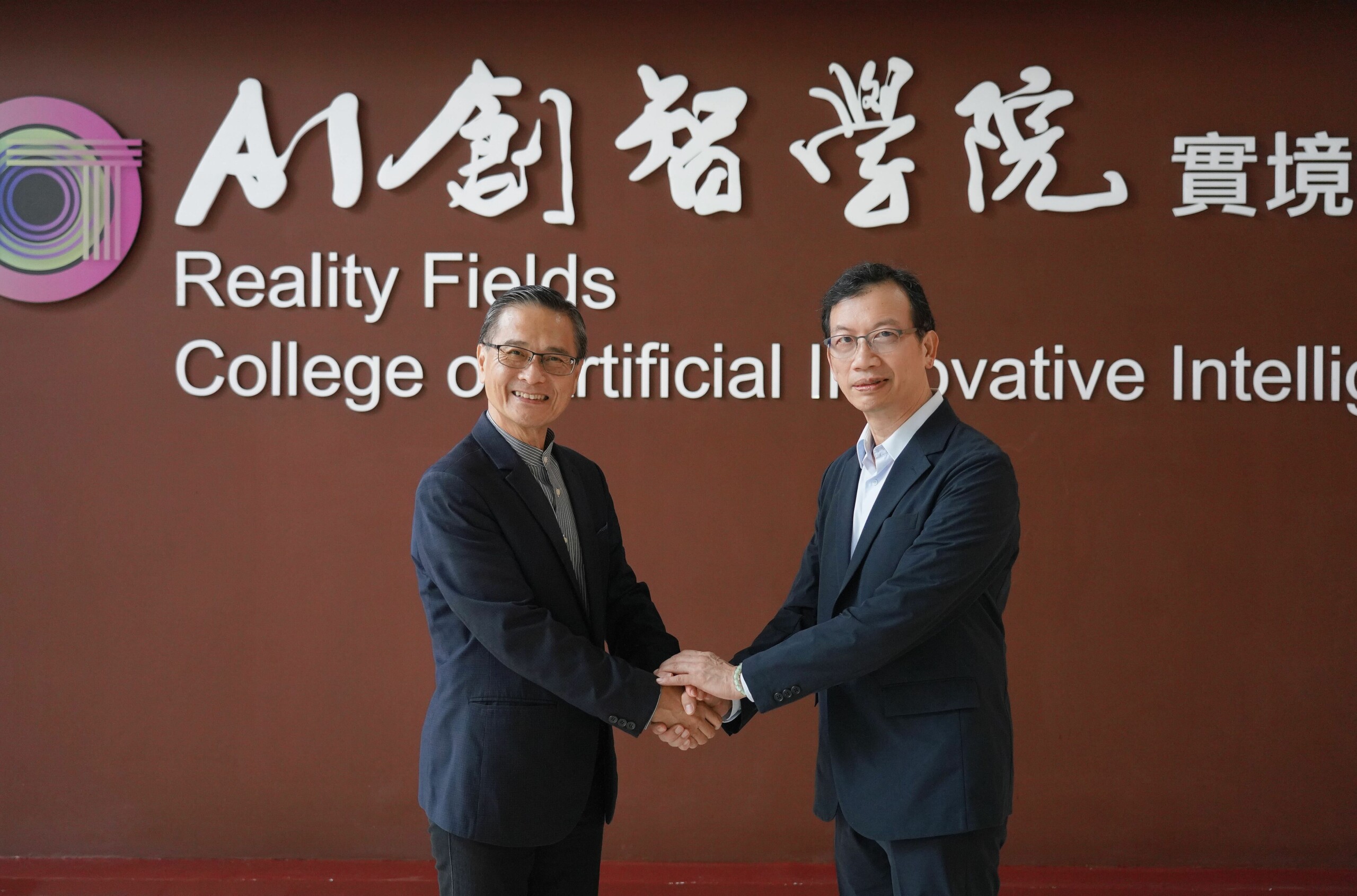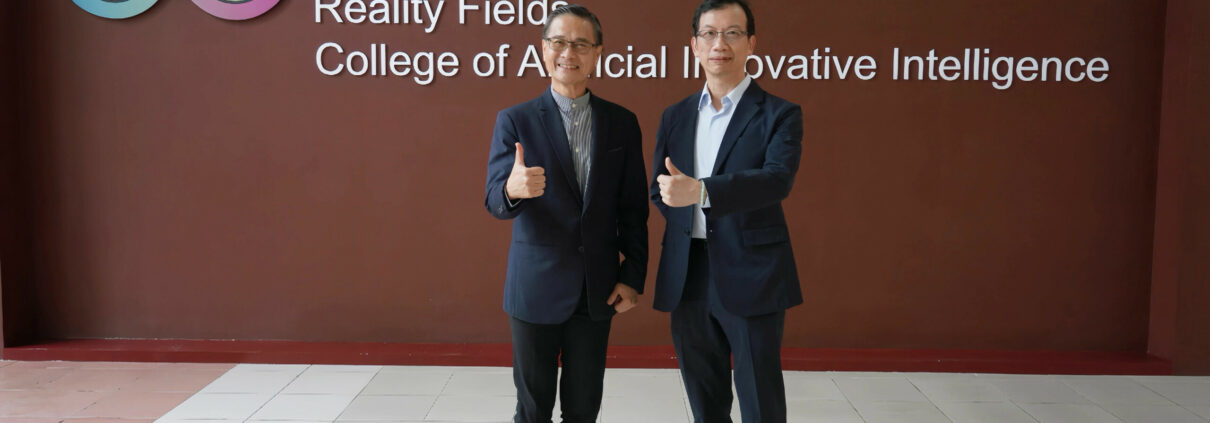Taiwan AI Labs and Tamkang University Introduce AI Certification Program Allowing No-Code Agent Development
November 19, 2025 — As AI capabilities become essential workplace skills, the question arises: How can the next generation prepare for the future of work?
Taiwan AI Labs and the College of Artificial Innovative Intelligence at Tamkang University are jointly launching the FedGPT Certification Program, an initiative that introduces foundational concepts in generative AI and AI agents while guiding students through practical enterprise use cases. The program adopts Taiwan AI Labs’ agentic AI platform, FedGPT AgentTeam, enabling students to build automated AI-agent workflows that address everyday challenges and real workplace needs—all without requiring programming experience.
The timing is critical. According to the World Economic Forum’s The Future of Jobs Report 2025, 75% of organizations plan to upskill employees in AI, and 70% intend to hire candidates with AI experience. Labor market analytics firm Lightcast further reports that job postings requiring AI skills offer 28% higher salaries compared with general positions, underscoring strong demand for talent capable of applying AI to real-world scenarios.
Tamkang University has been a leader in digital transformation in recent years, becoming the first comprehensive university in Taiwan to establish a dedicated AI-focused college and undergraduate AI department. Guided by the dual registered trademarks “AI+SDGs = ∞” and “ESG+AI = ∞”, the university aims to advance AI literacy across its entire academic ecosystem. Taiwan AI Labs, meanwhile, has implemented trustworthy AI across multiple sectors including finance, healthcare, media, and the public sector.
Dean Zong-Han Li of the College of Artificial Innovative Intelligence stated, “President Huan-Chao Keh has strongly encouraged the use of AI to drive teaching innovation and foster ‘AI+ talent.’ The goal is to make AI a universal skill rather than a capability limited to engineers, empowering every student to amplify their professional strengths through AI.”
Coinciding with the university’s 75th anniversary, he added that he hopes FedGPT will serve as a learning assistant that supports students’ ethical reasoning, professional learning, and creative application, helping them apply technology responsibly.

Photo Caption: Zong-Han Li (left), Dean of the College of Artificial Innovative Intelligence at Tamkang University, and Cheen Liao (right), Chairman of YaTing Intelligence Co., Ltd., strategic partner of Taiwan AI Labs.
In 2025, Taiwan AI Labs released a new version of its agentic AI platform, FedGPT AgentTeam. Built on large language models, the platform integrates speech recognition, text-to-speech, image analysis, and multimodal visual question answering. It supports comprehensive processing of audio, image, and text data. Its built-in workflow designer offers a low-/no-code interface, enabling users to coordinate multiple agents using natural language to complete complex tasks.
Through this academic–industry collaboration, six cohorts of the FedGPT Certification Program will be offered between November 2025 and June 2026. Courses will be taught by instructors from Taiwan AI Labs, with the goal of training 100 students as hands-on AI practitioners. The program is open to students from all disciplines, with no requirement for engineering background or programming experience.
Taiwan AI Labs noted that, in response to industry demand for future AI talent, the curriculum emphasizes practical application—teaching students to design AI-agent workflows that can be deployed in real-world settings and solve operational challenges faced by individuals and organizations.
Drawing from previous industry collaborations, Taiwan AI Labs cited several real-world examples of FedGPT-powered AI agents:
- Finance: Analyzing customer service voice and text interactions and generating accurate responses using internal knowledge bases
- Healthcare: Transcribing doctor–patient conversations, summarizing clinical notes, and reducing administrative workload for healthcare professionals
- Media and entertainment: Retrieving archived materials, compiling background information, generating studio logs, and supporting editorial research
These automated workflows can be extended to many additional applications. Once students gain familiarity with agent logic and tools, they can apply the skills creatively within their own professional fields to generate value.
Students may also build workflows for everyday personal needs, such as a vocabulary-learning assistant or a fitness planner that generates customized training programs based on user-provided data. The program encourages participants to design solutions that address real-life challenges, demonstrating the broad potential of AI applications.
Students who complete the 8-hour program, pass the online assessment, and meet practical requirements will receive:
- Tamkang University micro-credential certification, applicable toward graduation credits
- Certification from Taiwan AI Labs, strengthening their professional profile
- Internship opportunities at Taiwan AI Labs for high-performing participants, enabling them to gain hands-on experience with cutting-edge AI technologies
Cheen Liao, Chairman of YaTing Intelligence Co., Ltd., a strategic partner of Taiwan AI Labs, expressed enthusiasm for this collaboration. He noted that while generative AI is already widely adopted, workers across industries increasingly need automated workflows powered by AI agents. Taiwan AI Labs has implemented FedGPT internally to enhance cross-department collaboration and communication efficiency. Through this partnership with Tamkang University, students will gain early exposure to enterprise-level AI workflows, strengthening their practical and problem-solving abilities in alignment with industry needs.
Ethan Tu, Founder of Taiwan AI Labs, emphasized that AI will significantly reshape the future workplace. He noted that individuals will need an “entrepreneurial mindset,” learning to break down tasks and delegate repetitive work to AI while focusing on high-value creative contributions. Those who can design and deploy AI workflows across scenarios may even build “one-person companies” supported by teams of AI agents functioning as highly capable collaborators.



